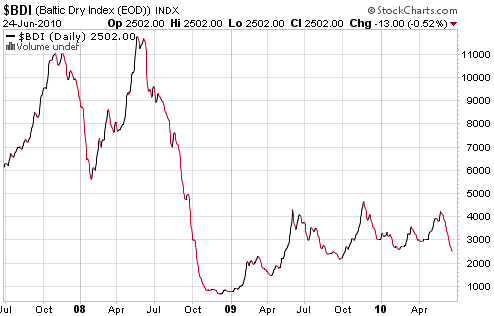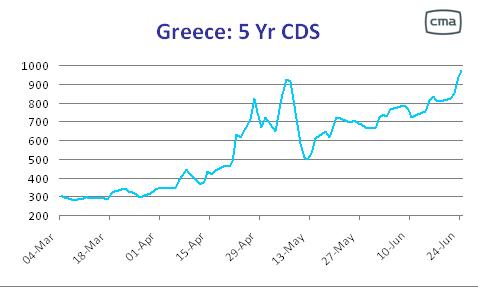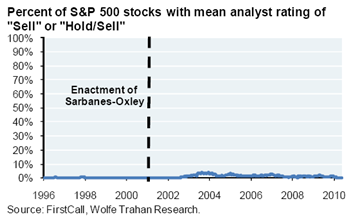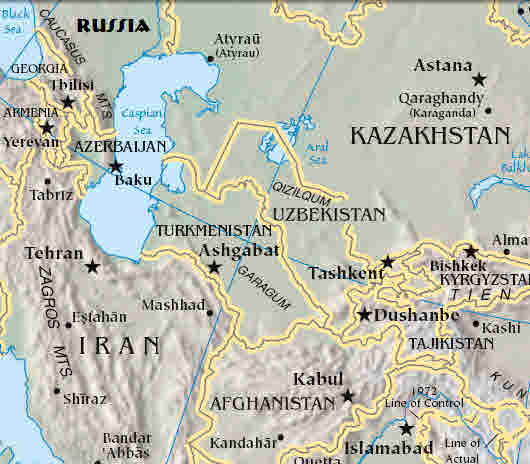
Dynamics

|
Generational Dynamics |
| Forecasting America's Destiny ... and the World's | |
| HOME WEB LOG COUNTRY WIKI COMMENT FORUM DOWNLOADS ABOUT | |
A naval arms race is growing on the Caspian Sea
The Baltic Dry Index (BDI) is a measure of shipping costs for cargoes in "capesize" vessels -- vessels that are too large to fit through the Suez or Panama canals, and so must go around the Cape of Good Hope or Cape Horn. These vessels transport the huge cargoes of copper, iron ore and other commodities.
The BDI surged to bubble levels in early 2008, thanks to enormous Chinese demand for commodities prior to the Beijing Olympics in August. Once the Olympics games ended, Chinese demand plummeted, creating a chain reaction that brought world wide trade and transportation almost to a standstill. The Baltic Dry Index plummeted an astounding 95% by April 8, 2009, and then recovered part of its losses.
Now the BDI is falling sharply again, as can be seen from the following graph:
 |
According to Reuters, the main reasons for the new plunge are smaller demands from China for iron ore and coal.
Another reason is that a rising number of new ships are set to enter the market in 2010-11 -- ships that were originally commissioned during the heady days of the early 2008 bubble.
The price of credit default swap (CDS) continues its relentless climb, as shown by this graph from FT Alphaville:
 |
The above graph ends at Thursday morning. CDS prices for Greek debt continued to rise on Thursday, and by the end of the day, Bloomberg reported that CDS prices were at 1077 basis points, an all-time record.
Recall that a credit default swap (CDS) is a kind of insurance policy on debt that pays off when the underlying debt defaults. When CDS prices rise, it means that investors are increasingly afraid that the underlying debts will default. Prior to the 2007 credit crisis, typical prices were 10-20 basis points, meaning that it would cost $10,000-20,000 dollars to insure $10 million of debt.
With CDS prices for Greek debt now at 1077 basis points, it means that it costs $1,077,000 to insure $10,000,000 of debt for five years. This is an all-time high.
The European $1 trillion bailout occurred on May 10 because Greek CDS prices were above 900 basis points. The hopin' and prayin' at that time was that the bailout would end the European financial crisis once and for all, but now CDS prices for Greek debt are rising parabolically again, as if the bailout had never occurred.
The Greeks and the Europeans are all denying that "restructuring" (a form of bankruptcy) of Greek debt is even being considered, but I doubt that any financial analyst living in the real world today doubts that Greece is headed for bankruptcy.
FT Alphaville reports that the Bank of International Settlements, which was created in 1931 in the wake of the stock market crash, has done "something great": It has made its archive of historic annual reports online, all in one place at http://www.bis.org/publ/arpdf/archive/index.htm .
Here's a quote from the BIS 1938 Annual Report (PDF):
Notice particularly that politicians and journalists tend "to ascribe the whole of prosperity to wisdom of policy and the whole of a setback to abnormal non-economic factors."
That's exactly what's been going on in this decade. The writers of the 1938 report were just as skeptical then as people like me are today.
From the point of view of Generational Dynamics, "wisdom of policy" is a conceit. Politicians can neither cause nor prevent the continuing and worsening financial crisis, of which we've only seen a very small part to date.
This is absolutely hilarious.
Someone at JP Morgan has analyzed the percentage of S&P 500 stocks that have received "Sell" or "Hold/Sell" ratings (as opposed to "Buy") since 1996. The graph appears in Paul Kedrosky's blog:
 |
In other words, 97-99% of stocks received "Buy" or similar ratings, even during the dot-com bubble crash, even during the crash of the credit bubble.
Dear Reader, if you pay any attention to your brokers' recommendations, then you're throwing good money after bad. Your broker doesn't give a shit about you -- he just wants to earn a commission. So he'll always tell you to "Buy! Buy! Buy!"
That's why when I listen to these experts on CNBC, or read them in the Wall Street Journal, I almost always want to vomit.
A major naval arms race is brewing on the Caspian sea, the largest lake in the world, according to Strategy World.
 |
Russia has the largest Caspian Sea fleet. Iran is increasing its naval strength in its Caspian Sea port, and is not afraid to exert naval power. Turkmenistan has a small navy.
And now Kazakhstan is planning to add six warships to its Caspian navy by the end of 2010, according to EurasiaNet. One of the ships will be armed with ship-to-ship Exocet missiles.
There is no war planned, as far as I know, but to paraphrase an old saying, nobody builds an armed navy unless they intend to use it.
One interesting thing that I learned in doing this story is that there's a water route through Russia from the Caspian Sea to the Black Sea. (Details: Up the Volga River, through a canal to the Don River, and thence to the Sea of Azov and the Black Sea. The canal connecting the Volga River to the Don River was built in 1952.)
An Iranian aid flotilla that was to be used in a new attempt to break Israel's Gaza naval blockad will not sail, according to Ynet news.
An Iranian official is quoted as saying, "The vessel was supposed to leave for Gaza on Thursday, but because of hurdles put up by the Zionist regime regarding the impossibility of getting some of the goods (into the Strip), it was decided to postpone the departure to Sunday, but now this too will not happen."
However, other Iranian officials are not ready to give up, according to the article. Another Iranian vessel will leave for Gaza next Tuesday or Wednesday. It will travel by the Caspian Sea route that I described in the preceding story, to arrive at Turkey, and from there to Gaza.
"Oresteia," composed by my late cousin Iannis Xenakis, was performed at the Istanbul Music Festival on Monday. The oratorio is sung in three acts with "electrifying" choral work. It's based on the trilogy of Greek tragedies that celebrate the birth of democracy out of destruction in ancient Greece. The Istanbul venue for the performance has historic significance because it was Istanbul's first Christian (Orthodox) Church, which the Ottoman Turks turned into a weapons storage facility shortly after they conquered Constantinople in 1453. Reuters
The interim Kyrgyzstan government, which took power through a coup two months ago, is seeking to establish its legitimacy through a national referendum being held on Sunday. The fear is that the Uzbek-Kyrgyz violence that tore through Osh and Jalalabad, killing thousands and creating hundreds of thousands of refugees, will spread to the capital Bishkek by those wishing to destabilize the new government. Global Post
How to build a homemade nuclear reactor in your spare time in a New York City apartment as a do-it-yourself project. BBC
Hundreds of thousands of anti-government protesters, from labor unions and the French Communist Party, led a general nationwide strike on Thursday across France, protesting the rise of the retirement age from 60 to 62. Independent
Strippers at the Mimosa Dancing Girls strip joint in New Orleans are demanding compensation payouts from BP because they're losing business, now that their fishermen clientele can no longer afford their services. Guardian
(Comments: For reader comments, questions and discussion,
see the 25-Jun-10 News -- Greece's debt again reaches crisis levels thread
of the Generational Dynamics forum. Comments may be posted
anonymously.)
(25-Jun-2010)
Permanent Link
Receive daily World View columns by e-mail
Donate to Generational Dynamics via PayPal
Web Log Summary - 2016
Web Log Summary - 2015
Web Log Summary - 2014
Web Log Summary - 2013
Web Log Summary - 2012
Web Log Summary - 2011
Web Log Summary - 2010
Web Log Summary - 2009
Web Log Summary - 2008
Web Log Summary - 2007
Web Log Summary - 2006
Web Log Summary - 2005
Web Log Summary - 2004
Web Log - December, 2016
Web Log - November, 2016
Web Log - October, 2016
Web Log - September, 2016
Web Log - August, 2016
Web Log - July, 2016
Web Log - June, 2016
Web Log - May, 2016
Web Log - April, 2016
Web Log - March, 2016
Web Log - February, 2016
Web Log - January, 2016
Web Log - December, 2015
Web Log - November, 2015
Web Log - October, 2015
Web Log - September, 2015
Web Log - August, 2015
Web Log - July, 2015
Web Log - June, 2015
Web Log - May, 2015
Web Log - April, 2015
Web Log - March, 2015
Web Log - February, 2015
Web Log - January, 2015
Web Log - December, 2014
Web Log - November, 2014
Web Log - October, 2014
Web Log - September, 2014
Web Log - August, 2014
Web Log - July, 2014
Web Log - June, 2014
Web Log - May, 2014
Web Log - April, 2014
Web Log - March, 2014
Web Log - February, 2014
Web Log - January, 2014
Web Log - December, 2013
Web Log - November, 2013
Web Log - October, 2013
Web Log - September, 2013
Web Log - August, 2013
Web Log - July, 2013
Web Log - June, 2013
Web Log - May, 2013
Web Log - April, 2013
Web Log - March, 2013
Web Log - February, 2013
Web Log - January, 2013
Web Log - December, 2012
Web Log - November, 2012
Web Log - October, 2012
Web Log - September, 2012
Web Log - August, 2012
Web Log - July, 2012
Web Log - June, 2012
Web Log - May, 2012
Web Log - April, 2012
Web Log - March, 2012
Web Log - February, 2012
Web Log - January, 2012
Web Log - December, 2011
Web Log - November, 2011
Web Log - October, 2011
Web Log - September, 2011
Web Log - August, 2011
Web Log - July, 2011
Web Log - June, 2011
Web Log - May, 2011
Web Log - April, 2011
Web Log - March, 2011
Web Log - February, 2011
Web Log - January, 2011
Web Log - December, 2010
Web Log - November, 2010
Web Log - October, 2010
Web Log - September, 2010
Web Log - August, 2010
Web Log - July, 2010
Web Log - June, 2010
Web Log - May, 2010
Web Log - April, 2010
Web Log - March, 2010
Web Log - February, 2010
Web Log - January, 2010
Web Log - December, 2009
Web Log - November, 2009
Web Log - October, 2009
Web Log - September, 2009
Web Log - August, 2009
Web Log - July, 2009
Web Log - June, 2009
Web Log - May, 2009
Web Log - April, 2009
Web Log - March, 2009
Web Log - February, 2009
Web Log - January, 2009
Web Log - December, 2008
Web Log - November, 2008
Web Log - October, 2008
Web Log - September, 2008
Web Log - August, 2008
Web Log - July, 2008
Web Log - June, 2008
Web Log - May, 2008
Web Log - April, 2008
Web Log - March, 2008
Web Log - February, 2008
Web Log - January, 2008
Web Log - December, 2007
Web Log - November, 2007
Web Log - October, 2007
Web Log - September, 2007
Web Log - August, 2007
Web Log - July, 2007
Web Log - June, 2007
Web Log - May, 2007
Web Log - April, 2007
Web Log - March, 2007
Web Log - February, 2007
Web Log - January, 2007
Web Log - December, 2006
Web Log - November, 2006
Web Log - October, 2006
Web Log - September, 2006
Web Log - August, 2006
Web Log - July, 2006
Web Log - June, 2006
Web Log - May, 2006
Web Log - April, 2006
Web Log - March, 2006
Web Log - February, 2006
Web Log - January, 2006
Web Log - December, 2005
Web Log - November, 2005
Web Log - October, 2005
Web Log - September, 2005
Web Log - August, 2005
Web Log - July, 2005
Web Log - June, 2005
Web Log - May, 2005
Web Log - April, 2005
Web Log - March, 2005
Web Log - February, 2005
Web Log - January, 2005
Web Log - December, 2004
Web Log - November, 2004
Web Log - October, 2004
Web Log - September, 2004
Web Log - August, 2004
Web Log - July, 2004
Web Log - June, 2004